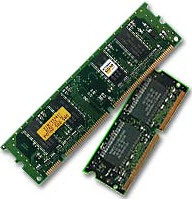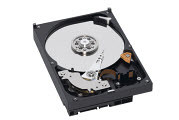You updated your old PC anti-virus program, but now your PC is running slow. It may have short term memory loss. Here’s a way to get it back on the fact track.
The Conflicker worm has become a celebrity, getting more press than a Lindsay Lohan midnight pleasure drive on the LA freeways. And it has everyone thinking about PC security, which is a good thing. So you update that old anti-virus program you haven’t thought about in years. But you notice your PC has become as slow as that car you are always behind when you are running late for an appointment.
Someone tells you the new supped-up anti-virus program is using more memory. So you think that deleting files on your hard disk will free up memory and your PC with pick-up the pace. Hit the brakes; you are going down the wrong road. And while getting a new PC is temping, consider adding more RAM. For just a few $$$ you can get more mileage out of that old PC, the one your have spent hours configuring and don’t look forward to doing that again with a new machine.
Your PC needs more RAM (Random Access Memory) and not necessarily more hard disk (HD) space. It is a common misconception to confuse these terms since techies use the word “memory” to describe both RAM and HD space. But before you run over your friendly neighborhood geek for confusing you with misleading terms, here’s an easy way to understand the two types of memory in your PC.
RAM is PC short term memory and HD space is PC long term memory.
Here’s how Wikipedia describes short term memory:
Short-term memory refers to the capacity for holding a small amount of information in mind in an active, readily available state for a short period of time.
RAM is quick and fast and usually looks something like this:

Here is what a HD may look like:

That new high powered anti-virus program was installed on your HD, but it uses
RAM to continually monitor your PC protecting it from Conflicker and the other cyber-nasties. This requires more PC RAM (short term memory) allocated to security and less available for web browsing, email, music, pictures, and other stuff. Thus, your PC has short term memory loss for the things you want to do and appears to be running slower.
The good news is that with most PCs you can add RAM putting your PC back in high gear. However, adding RAM to a PC is not for the faint of heart. Because there are so many different types of RAM and so many models of PCs, a RAM upgrade can be a daunting task.
Let me help fix your PCs short term memory loss by upgrading your RAM. Click on the following link for help to put your PC back in the fast lane.
http://www.techadvocate-solutions.com/contactus.php
By the way, does anyone know a way to add more RAM to my brain to help with my short term memory loss? I’m finding it hard to keep up with all the Lindsay/Paris gossip with all the work I have to do.
Leave a Reply